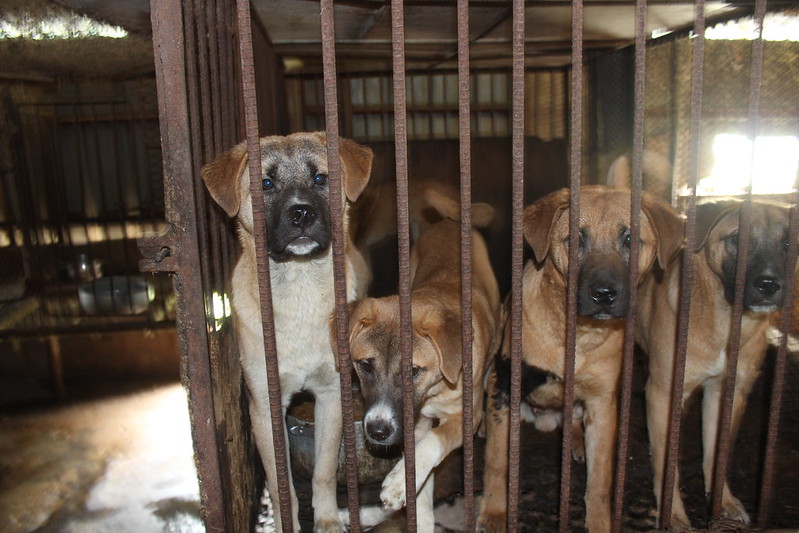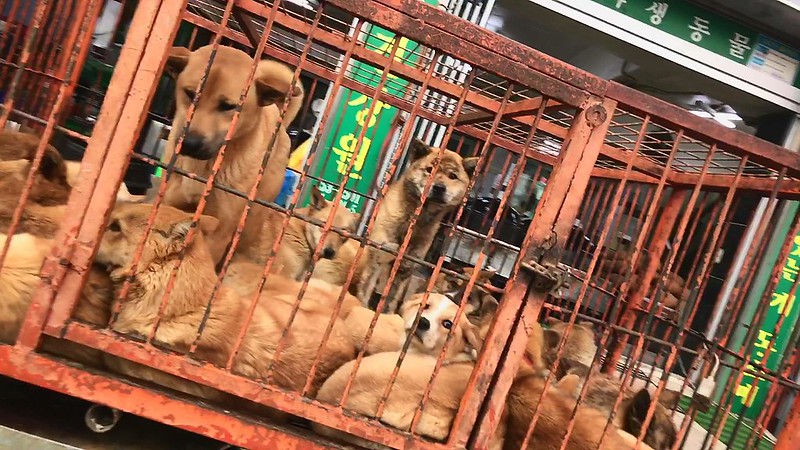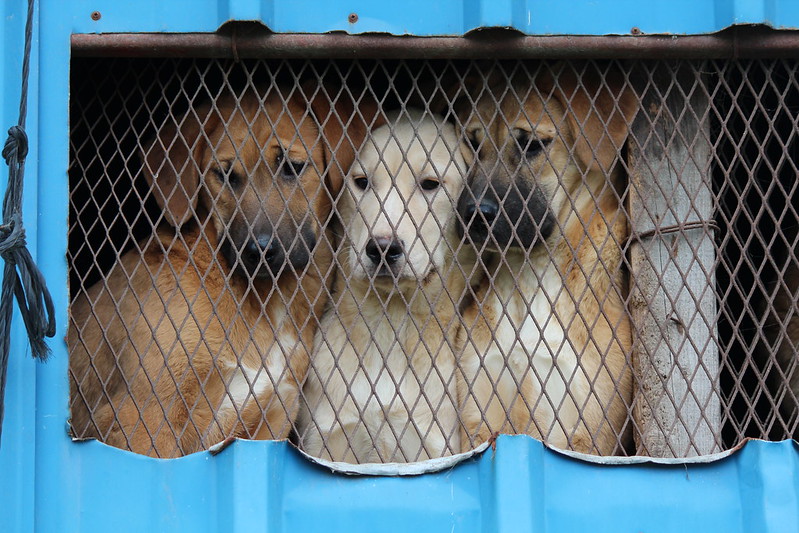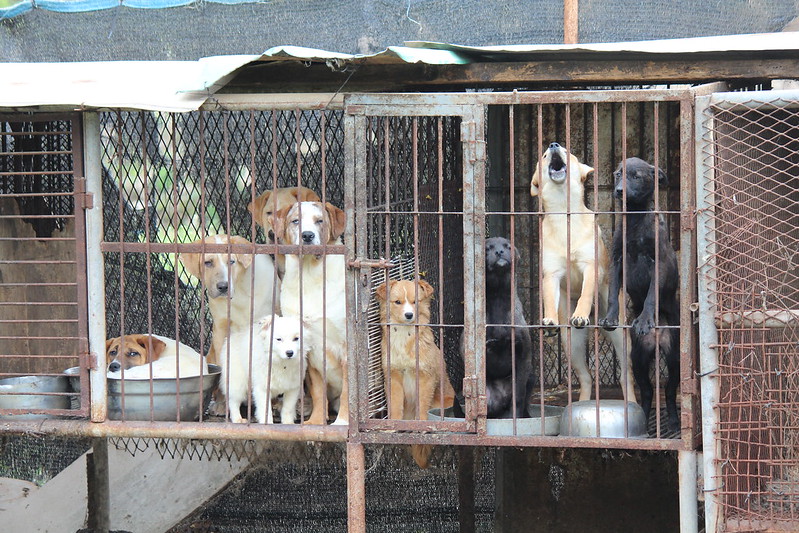Killing dogs for meat declared illegal in South Korea – what can China learn?
17 July 2018
Campaign to end the dog meat trade results in a ban on killings – how did Korea get here, and will the same techniques work in other countries?
By Cat and Dog Welfare Director Irene Feng
June 2018 was a month to remember for dog lovers all over the world. This was when Korea enjoyed a watershed moment as a court declared the killing of dogs for meat to be illegal.
When I met with activists working to end the trade in Korea just last year, we couldn’t see a clear path to the end. Today, everyone believes the dog meat industry in Korea is done.
It seems like such a sudden change – but is it?
Pivotally, the decision to outlaw the killing of dogs for meat was based on Korea’s existing animal welfare laws, which were passed in 1991. The law has been around for nearly 30 years but only now has a court applied it in such a way as to restrict the dog meat trade.
Perhaps then, changing public perceptions have actually been the biggest factor, with the animal welfare law providing the mechanism for changed opinions to be realised.
Sadly, China currently lags behind in both these regards. The country still has no animal welfare laws, but perhaps more importantly considering the history in Korea, is the fact that more awareness of the cruelty behind the dog meat trade is needed.
When the news broke that a Korean court had made it illegal to kill dogs for meat, reaction in China was mixed. Those for and against the move were about 50-50, while one recurring opinion on social media was, "I don't eat dog meat, but I don't oppose others eating dog meat either."
The carrot, not the stick
The good news is that Korean attitudes once mirrored current Chinese attitudes. The fact that they have changed so markedly today shows change is possible.
In 2002, when Korea co-hosted the FIFA World Cup, the dog meat industry became a big deal. International groups criticised Korea and the Koreans reacted the same way everybody does when attacked – they got defensive.
It is widely agreed now that the criticism actually inspired a pro-dog-meat agenda in Korea with some people who had never eaten dog before, suddenly taking it up as a way of asserting national pride and rejecting foreign criticism.
But in the 16 years since, change has happened all the same. It wasn’t criticism or shame which made people view the killing and consumption of dogs differently, it was time.
Since 2002, cultural values have changed, awareness of the cruelty of the dog meat industry has increased and dogs have become an indispensable and positive part of millions of people’s lives.
Attacking people for their current behaviour is the worst way to try to change that behaviour. Instead we have to show them how much better the alternative is so that they want and choose to change.
For the vast majority of Koreans today, it is not just enough that they personally don’t eat dog meat. Now they don’t want any dog to suffer the fear and pain of being captured and cruelly slaughtered for a meal.
This is where China needs to get to if the dog meat industry is to end.
Animal welfare laws will be vital too, and we’ll keep pushing for these to help protect the welfare of all animals in the country – but as we’ve seen in Korea, the law without the will won’t change anything.
Animals Asia works holistically to end the dog meat trade in China. The NGO funds or mentors 120 welfare groups in China and organises conferences to help government and charities work together to improve the welfare of dogs. Working deep within society, in hospitals, care homes and schools, awareness raising programmes such as Dr Dog and Professor Paws have shown over 600,000 people how relationships with dogs can enrich human lives.
READ MORE:
Dog cruelty targeted as pop-up think-tank unites charities and government agencies across China
People, power and positivity: How we built a grassroots movement against dog meat cruelty
BACK








